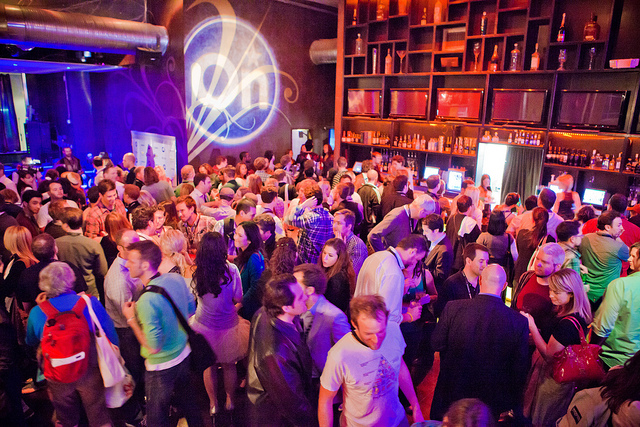At SXSW, a clear call for change was in the air: Let’s consider not just the technology, but the people that work with the technology. It’s time to be more inclusive, collaborative, and optimistic.
The festival has a reputation for being a bellwether of what’s to come in tech, from Twitter to Foursquare to Meerkat in years past. But this year, we didn’t hear so much about breakout apps—rather, 2017 is turning out to be the year of humans. Here are 4 human-centric undercurrents we heard through the week.
Uncle Sam wants you. With a backdrop of Uber and Lyft missing from Austin this year (following their refusal to comply with local government on driver fingerprinting), several speakers touched on how important it is for tech folks to engage with government leaders. As Steve Case, cofounder of AOL, said, “Most people are kind of anti-government—but the internet wouldn’t exist without the government.” At a gig economy discussion, Massachusetts State Senator Eric Lesser said his advice for the tech community was to “Be engaged in public policy. Be part of the conversation with public officials.” Accordingly, SXSW featured a full lineup of programming for the technology industry called “Tech Under Trump.”
The future of work is the future of humans. From learning new code to teaching others your newfound skills, many speakers emphasized how a learning mindset is crucial. Beth Comstock, vice chair of GE, said that for our future, we need to rethink what a manager really should do, and make room in organizations for testing the new. And after a session sponsored by CapitalOne called “Don’t Become a Dinosaur: Future-proof Your Career,” attendees of many ages lined up to share their own reinvention stories with the speaker, David Wurmfeld, senior engineering manager at CapitalOne.
There’s a Silicon Valley backlash. Many spoke to the need for companies to consider people outside the Valley, and embrace customers and employees from all American regions. At “Why the Rustbelt? IoT in the Midwest,” Detroit was heralded as a hub of innovation. Earlier, Steve Case reminded audiences that Silicon Valley itself was once just fruit orchards, but that the next revolution in the world needed to be “everywhere, and for everyone.” So, too, was Austin called out as a place where more companies will sprout innovation labs. A focus on diversity also felt like a response to the Valley’s lack of it: The New York Times’ Executive Editor Dean Baquet said he recognizes the need for coastal reporters to better cover and reflect the diversity of all the U.S. when he spoke at “Covering POTUS: A Conversation with the Failing NYT.” And at Pinterest, Head of Diversity Candace Morgan described the importance of moving away from “culture fit” in hiring—a common Silicon Valley method—to focusing more on a candidate’s qualities and what they bring to the table.
Humanity shouldn’t fear AI and analytics. We heard far more excitement about the possibilities of artificial intelligence (AI) than pessimism and fear. Beth Comstock said that for her, artificial intelligence meant the need for “a return to ethics.” Because AI still hasn’t grown into its full capabilities, Steve Case added that companies still don’t know how good it could be. “People have to be exposed to it,” he said. And at a panel discussion on “The Impact of A Quantified Housing Ecosystem,” housing experts considered better use of data as key to expanding home ownership in the U.S.: Using psychometrics, for example, to look at what it means for credit worthiness if a user hesitates before answering a survey question
For more SXSW recaps from year to year, check out our Slideshares.
By Angela Pham, Strategist, Thought Leadership
Image source: Flickr user Kris Krüg

